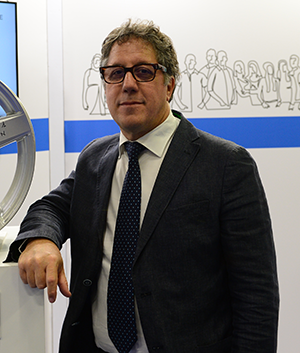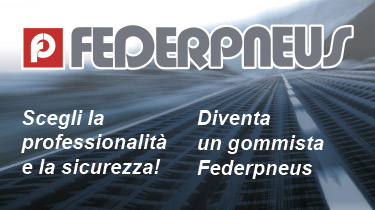 Italian rubber companies can rely on a key player ready to support them in the technical development of their products, whether raw materials, semi-finished or finished products, one that carries out laboratory tests on materials, and certifies their suitability for the required uses and legal regulations. This key player is called Cerisie and is one of the many assets and structures belonging to Assogomma, a historic industrial association (founded in 1910 and one of the eight founders of Confindustria) that brings together the entire rubber supply chain including the tire industry which bears a significant weight. Pneurama had the opportunity to discuss with Vincenzo Boffa, engineer and director of Cerisie, its activities and most recent projects dedicated to tires and wheels.
Italian rubber companies can rely on a key player ready to support them in the technical development of their products, whether raw materials, semi-finished or finished products, one that carries out laboratory tests on materials, and certifies their suitability for the required uses and legal regulations. This key player is called Cerisie and is one of the many assets and structures belonging to Assogomma, a historic industrial association (founded in 1910 and one of the eight founders of Confindustria) that brings together the entire rubber supply chain including the tire industry which bears a significant weight. Pneurama had the opportunity to discuss with Vincenzo Boffa, engineer and director of Cerisie, its activities and most recent projects dedicated to tires and wheels.
Can you first give us an overview of Cerisie's activities?
"Cerisie-Italian Rubber Laboratory, is accredited by Accredia (the single national body that certifies the competence, independence and impartiality of several certification and inspection bodies and testing and calibration laboratories, ed.) and performs physical/mechanical and chemical tests on polymeric materials. In addition to this, it supports companies, whether associated with Assogomma or external, in designing materials (for example, but not exclusively, the development of compounds and other similar products) for specific use, the definition of production processes and the design of finished products. Additionally, we assess the environmental compatibility of elastomers, and other collateral aspects such as, for example (but this is not the case with automotive products, of course) their being suitable for food contact."
So Cerisie’s involvement with the tire industry relates mainly to compounds?
"The work on and with compounds is very important but it is not the only one. Suffice it to say that we have more than 140 laboratory tests in our catalogue for vulcanized rubber, which is the main component of the tire. This simply means that we have standardized these procedures, which we carry out according to a wide range of standards, from international ISO and EN standards to national UNI and DIN standards, even to those specific to automotive industries such as the Stellantis and Volkswagen groups or even the Italian State Railways group. In addition, we are able to carry out customized tests; we often work with the customer on the definition of cycles after listening to their needs. In general, we must say that the definition of compounds and recipes for the automotive sector is rather complex because it is truly "tailor made." Much of the rubber used in the automotive industry is of natural origin, so a lot of work is done on additives. The main challenge is to reduce curing times, which nowadays are at least 10 to 20 minutes and are the biggest bottleneck in the production chain. This would make the production processes more economical."
What are the main challenges, as far as rubber is concerned, in the automotive sector today?
"Recycling, reuse and circular economy, which are three closely related aspects. We spend a lot of time on devulcanizing rubber powder to be reused in tire production. This is a feasible challenge, as long as tire manufacturers use the purest materials."
Besides Accredia, has Cerisie received any other official recognition, particularly from the wheel industry and the automotive world?
"Yes, several. We have been enrolled in the Register of Highly Qualified External Public and Private Laboratories authorized, in accordance with Article 4 of Law 46 dated 17/02/1982 to carry out applied research in favour of small and medium enterprises (DM 16/06/83). We are Mentioned in UNI-CUNA 10186 as an Official Laboratory for the preparation and supply of the reference mixtures to evaluate the service fluids used in road vehicles, farm machinery and earth moving machinery. We are also recognised by UCICIS, Union of Italian Manufacturers of Industrial Wagons and Similar Products as the Official Laboratory for the performing tests and wheels and complete supports for manual or towed propulsion according to UNI 10131 and ISO 2175 (ANIMA Tech. Off. Prot.10/4 - 6A/aa dated 21/01/79), and again we have been designated by the CIK-FIA International Karting Commission - International Automobile Federation as an official laboratory for racing tire certification.
Does your work also specifically affect the tire shop business?
"There are at least two aspects in which our work relates very closely to that of Pneurama readers. Let's start with the first: we are an official Airp laboratory for determining the physical-mechanical characteristics of materials intended for tire retreading according to Airp's LTH/110 specification."
This means a fine-tuning of compounds and other materials that comes from your long experience with rubber materials. And that helps retreaders in finding reliable and durable materials. And the second?
"Here we go a little bit outside our traditional area of activity with elastomer physics and chemistry. But we are still talking about rubber, or rather tires and how they are mounted. We dealt with the certifications for tire changers such as required by WDK, the German rubber industry association. With three years' work, we managed to simplify the necessary procedures while maintaining all the requirements. Previously they were extremely complex and entailed very high costs for the equipment manufacturers; at Cerisie we developed a procedure with sensorized wheels, equipped with load cells, thanks to which we can acquire the stress analysis data from the equipment manufacturer and process it at our site. In addition to cost, this procedure has significantly reduced the time to market the equipment."


